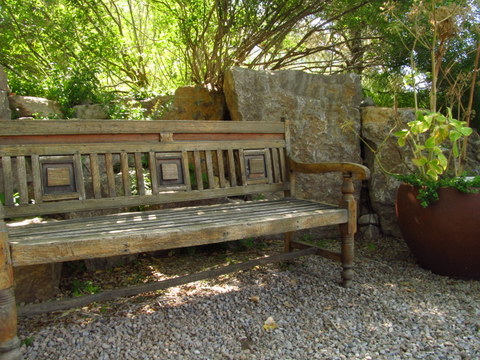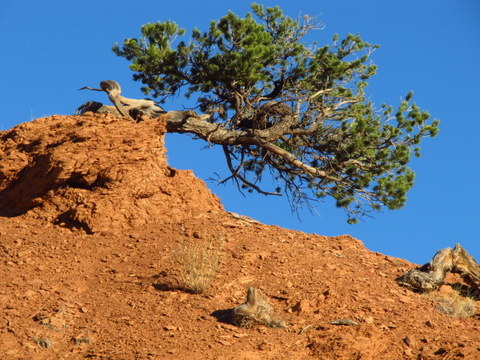Small Stones (Part III--Percolation)
(In "Small Stones (Part I--The Lie of the Land)" I mused about accomplishments big and small, and how the shrinking nature of accomplishments can be hard to accept for those with chronic illness. I concluded by wondering if a model that measure accomplishments in terms of their apparent size might be at fault. In "Part II--Tillage" I considered three case studies: a conductor, a dog, and Dad.)
And now for a brief digression.
(Or, Why I Never Come to the Point)
When I was an academic, my writing was linear. It presented, argued, and persuaded. Most literature--including all my favorite books--is linear, whether fiction, creative non-fiction, or even biography. No matter how indirectly, the story creates a course of action and rising tension. Characters grow by sudden discovery--by moments of realization that allow them to overcome obstacles and move forward.
Years of sitting in the garden have changed my idea of writing. I no longer quite believe in lines. I'm more compelled by cycles and the deepening of roots; by branching structures and ecosystems; by growth that gets cut back and re-emerges, and that takes years to mature. I am convinced by the slow processes of ripening and decay. By compost that nourishes the soil. I believe in letting growth unfold.

Nineteen years of illness have had their effect, too. Chronic illness changes your model of the world from recovery--from overcoming obstacles and moving past them--to habitation: learning to live amid obstacles and work with them. You do not master illness as a conquering hero masters an enemy. You engage with it, over and over and over. You do not move ahead on a plot line, but circle around the same few points; you don't go forward but deepen in place. You are less animal than tree, and your stories become a tree's stories.
It's like learning to live in the desert without modern conveniences. You discover how to make the most of scarce resources. You learn the subtle signs that let you find water in hidden places. You hoard it and cherish it and figure out tricks to keep it from evaporating. You learn to find shelter in a treeless land and to avoid the things that prickle and sting. But no matter how skilled you become at maneuvering, you never really adapt. You don't develop a horned toad's thick skin or a prickly pear's sheltering spines. You are still and will always be soft-skinned and fragile in a dangerous environment. No moment of realization, no matter how dramatic, will turn the desert lush and green for you. It will always be dry. Demanding.

You never conquer the desert. It never loses its power to destroy you. You just learn to work with it if you're careful and how to make the most of its gifts. You learn to love its spareness and surprising beauty. You learn immense hope from the things that thrive there. (Nothing sings of hope like a plant in the desert.) You can never let your skills get rusty, though. Mastery of this environment is not a linear, once-and-done process of overcoming, but a repetitive process of rehearsal. Even the masters never stop being vulnerable.
Writing that suggests otherwise--I no longer quite trust it.
To be concluded in Part IV--The Lie of the Land (Again).
comments powered by Disqus